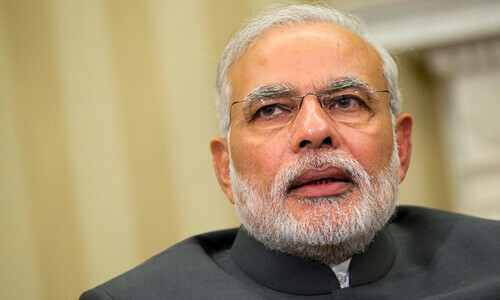Sole witness of Delhi bus gang-rape calls BBC documentary 'fake'

NEW DELHI: Awindra Pandey – the sole witness of the Dec 2012 savage gang-rape of a 23-year-old physiotherapist in New Delhi — has called British filmmaker Leslee Udwin's documentary "India's Daughter" on the murder and assault 'fake', said a report published on IBN Live.
Pandey, who was a friend of the victim, has supported the central government’s decision to ban “India's Daughter” which features a controversial interview with one of the convicts, Mukesh Singh.
According to the IBN Live report, he termed Udwin's handling of the issue as insensitive.
"The documentary is unbalanced as the victim's viewpoint is missing. The facts are hidden and the content is fake. Only Nirbhaya and I know what happened on that night and the documentary is far from the truth," said Pandey who had fought with the rapists to save his friend, but was overpowered and beaten brutally.
Earlier last week, India obtained a court order banning the film, which included the interview with Singh, on the grounds that it risked fueling public anger.
Home Minister Rajnath Singh said comments in which Singh blamed the 23-year-old victim, and said she should not have been out at night were “highly derogatory and an affront to the dignity of women”.
Take a look: India bans broadcast of gang-rapist documentary
Further backing his claim, Pandey said that he had never heard the name of tutor Satendra, who makes an appearance in the documentary.
"How does he know which movie I wanted to watch on that night," he questioned.
In the documentary, the tutor said:
"Awindra Pandey wanted to watch an action film while the victim wanted to watch 'Life of Pi'."
The victim's friend said a controversy was created unnecessarily and sensationalised.
"The documentary made fun of emotions and questioned the law and order situation in our country," he claimed in the IBN Live report.
Pandey was of the opinion that even though things slipped out of the Indian government's hand, it nonetheless took timely action.
Alleging that the film had 'stained' India's image and questioned the country's law and order situation, he went on to add that the documentary showed that any individual can enter the Central Jail of any country and interview a criminal.
On being asked whether he was approached to be a part of the film, he replied in the affirmative saying: "I was approached by many people when it started one and a half years ago in 2013. I did not want to be part of it as I was not convinced by its motive. Also, I was not mentally prepared and had health issues as well."
Pandey appealed that there should be a censor board in place for documentaries.













































